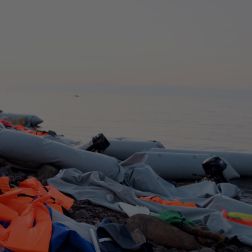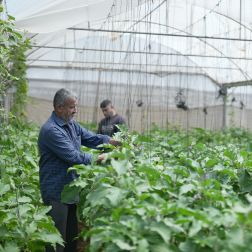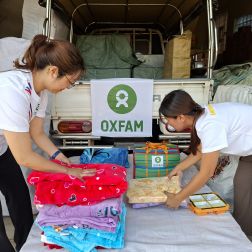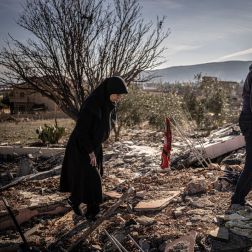- 4 mins read time
- Published: 4th August 2017
South Sudan's Independence Day should have been a celebration
Blog post by Christina Corbett, Oxfam Press Officer, South Sudan.
The 9th of July 2017 was Independence Day in South Sudan. A day that should have seen celebrations, festivities, smiles and laughter to mark six years of the world’s newest country. But not this year. Nor any year since the country’s conflict started in December 2013. It’s a time of sombre reflection.
South Sudan has spent the most recent half of its short life in conflict. The fighting has caused hunger so catastrophic that in February, the world’s first famine in six years – South Sudan’s lifespan - was declared.
I just got back from Padding, in northern Jonglei close to the Ethiopian border – a village in the ‘back of the back of beyond’, as one colleague told me. The village is so remote and inaccessible that food is dropped from planes and distributed by Oxfam staff on the ground to people in need. The last food drop was six months ago. This time the United Nations World Food Programme were delivering sorghum, beans, oil and fortified flour.
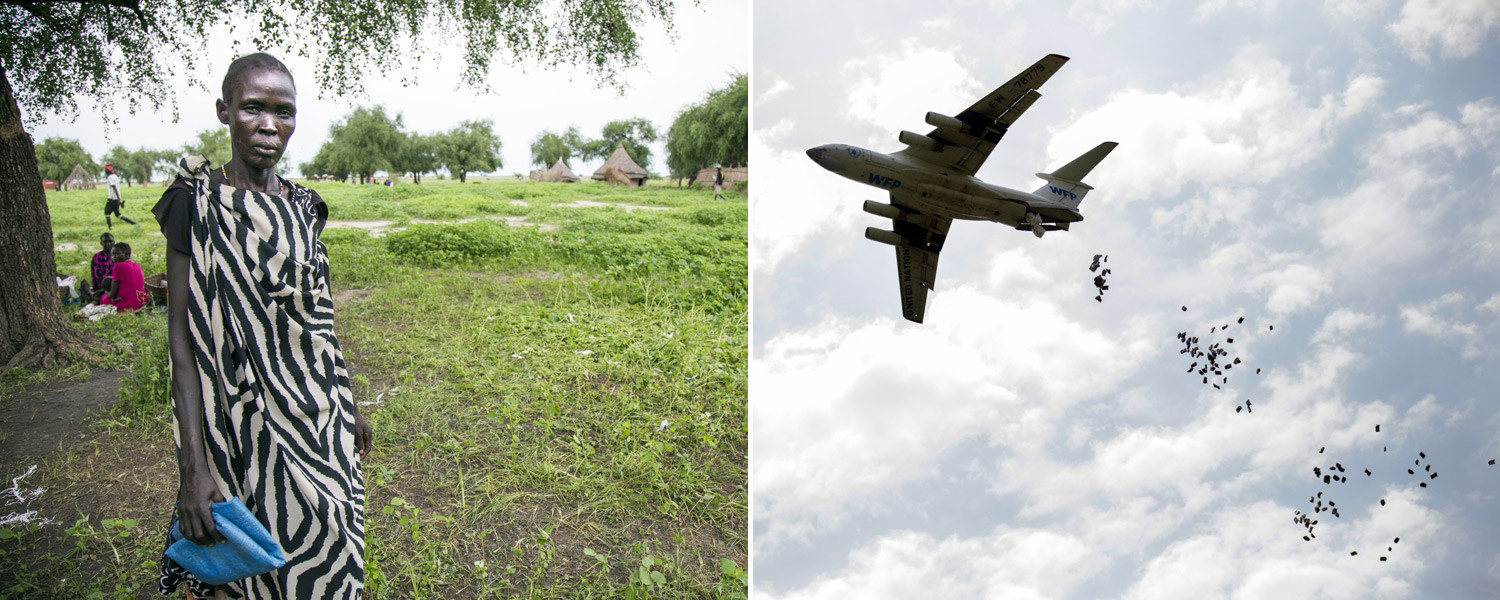 (L) Nyarek Kuajien spends her days in Pangob trying to cultivate a small patch of garden and collecting the leaves of trees and grass that grow during the rainy season. (R) Air food drop in northern Jonglei, South Sudan. Photo: Albert Gonzales/Oxfam
(L) Nyarek Kuajien spends her days in Pangob trying to cultivate a small patch of garden and collecting the leaves of trees and grass that grow during the rainy season. (R) Air food drop in northern Jonglei, South Sudan. Photo: Albert Gonzales/Oxfam
I met people who had come from Padding and around – people who had fled from fighting. I saw that people don’t care that the country is six years old – they only care whether their children will see six years of life, or if their struggle to feed their families will see them slide into starvation.
Padding routinely gets cut off from everywhere. It’s in the middle of a swamp that becomes wet and impassable during the rainy season. It takes a day to walk to Lankien, the nearest town and the nearest functioning market. But this market is under pressure. Sorghum – a staple, used to make “walwal”, a thick paste – has jumped in price from 700 South Sudanese Pounds (SSP) (€5/£4) in April 2017, to 13,000 SSP today. It is too much for people to afford even a handful.
Before March 2017 – when the brutal conflict between government and opposition forces hit this part of the country – 9,000 people were living in Padding village. Life was not bad. There were gardens that people cultivated, people had cattle. Now things are different.
Padding has nearly doubled in size with people who have fled from fighting. Nyarek Kuajien*, a mother who had fled with her nine children from Khorfulus, near Malakal, about 160km away, told me: “We saw the fighters coming and when they came we ran. We ran with nothing, absolutely nothing. We came to Pangob [a village near Padding] and told the village chief that we had run from fighting. He gave us some land to settle on.”
Now Nyarek spends her days trying to cultivate a small patch of garden and collecting the leaves of trees and grass that grow during the rainy season. She knows that some of the things she gathers make her children ill. “It can’t be good – but I just do whatever I can to keep life going. I get water from the swamp. When I was at home I had everything.”
Nyarek desperately wants water and food. She wants soap to clean clothes, even bed sheets to lie on – she wants the things that she had before the conflict started. Six years of independence means nothing to her. The last few years have taken more than they’ve given.
Until the South Sudanese have peace there will be nothing to celebrate. The governments of neighbouring countries and the wider international community must increase political pressure to stop this violent conflict. Oxfam will continue to work in the most difficult places – places where they have never seen such dire need. But aid alone won’t solve the problem.
Nyarek told me about her village and about returning there.
“I am not willing to go back,” she said. “People are no longer there. I don’t want to be alone.” The people of South Sudan must not be left alone.
Nyarek and her countrymen and women need the same international solidarity shown when the country was ushered into being. And they need it now more than ever before.
Following the power crisis that erupted in Juba in 2013, South Sudan has spiralled into a national, political and ethnic conflict, quickly spreading across many parts of the country and leading to the death of thousands of women, children and men.
Since then, 3.8 million people have been forced to flee their homes due to the brutal war. 7.5 million people are now in need of humanitarian assistance. Over 45 per cent of the population – more than 5.5 million people – are severely hungry. Oxfam is racing to get food, water and hygiene items to the most vulnerable people, including thousands who have fled to remote islands in the middle of huge swamps. In 2016 we reached over 600,000 with emergency and longer-term support. We are also responding to the refugee crisis regionally in Uganda, Ethiopia, Democratic Republic of Congo and Chad.
What you can do now
Millions of men, women and children are in need of urgent help in South Sudan, Somalia, Ethiopia, Kenya, Nigeria and Yemen. We urgently need your help to feed families and help save lives.
